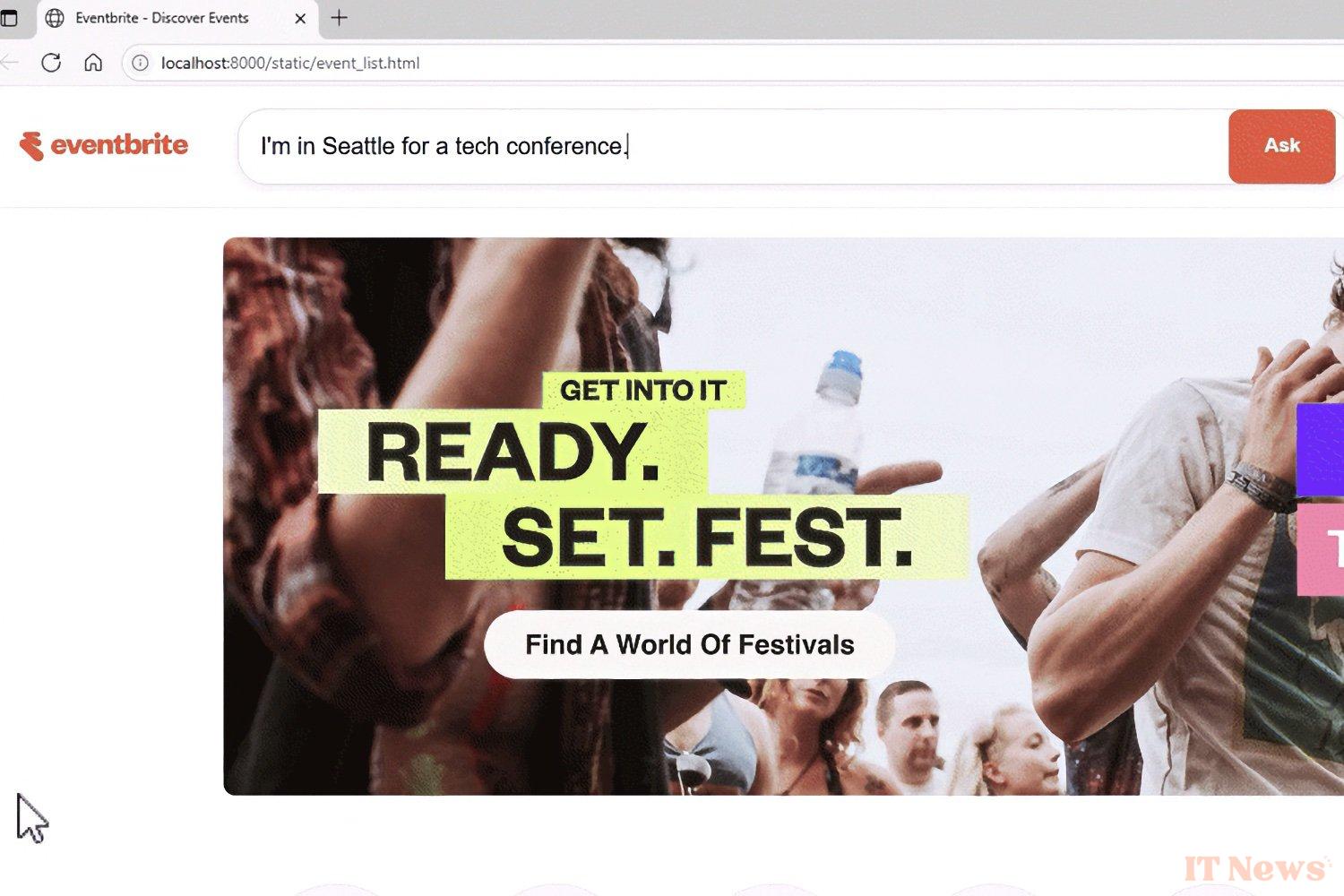The NLWeb interface is similar to that of traditional chatbots: a text field and a button. A clothing store could create a bot to help users choose clothes for a trip; a website specializing in cooking recipes could suggest wines to pair with a dish, for example.
Bots everywhere
NLWeb, for "Natural Language Web," is designed to be very simple to integrate: a few lines of code are enough to connect an AI model (without any obligation to choose one or another) to the site's data. It is an open source project available on GitHub, which relies on proven technologies such as RSS. This is no coincidence: the team behind NLWeb is led by R.V. Guha, a pioneer of the semantic web and creator of the very first version of RSS at Netscape in 1999. Version 2.0 of the format, widely used today, was later developed by Dave Winer.
You don't need a rocket scientist to power these specific bots: Microsoft suggests GPT-4o Mini (60% cheaper than GPT-3.5 Turbo), but even more economical models can be used. The publisher is therefore not likely to make a fortune with this initiative, its goal being to democratize the integration of conversational interfaces and AI tools in businesses, hoping that this widespread adoption will lead to the use of its high-margin Azure-based solutions.
Each NLWeb instance is also a Model Context Protocol (MCP) server, a standard developed by Anthropic for connecting AI models to each other. Through MCP, websites—if they wish—can make their content accessible to agents in the MCP ecosystem.
NLWeb will live or die based on its adoption. Several partners have already adopted the technology, including Tripadvisor, Shopify, Eventbrite, press publishers Hearst, and O’Reilly Media. The open source aspect and the lack of obligations with Microsoft could help.
NLWeb closely resembles an experiment launched last November by OpenAI. With the help of partners—the list is very similar to the one provided by Microsoft—the aim was to offer a ChatGPT-style bot on websites. The project suffered several delays due to technical limitations. NLWeb could well be the successful successor to this initiative.
Source: Microsoft




0 Comments